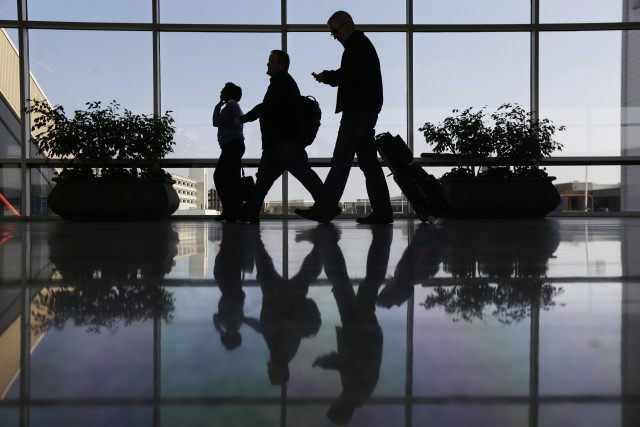Over growing fears of Islamist terror attacks, the EU is exploiting public fear to expand its surveillance capabilities. This conceited effort to override current national co-operation is not the solution.
MEP’s have now passed a resolution which will expand the EU’s security capabilities and reduce civil liberties. The proposal aims to collect and retain sensitive information about all air passengers travelling inside and outside the EU. This is a dream come true for EU technocrats, who desire to see all security matters attributed on a pan-European level. Whilst few will disagree with the desire to protect innocent civilians from terrorist attacks, it is essential we question what further powers over our daily lives the resolution will be giving to Brussels.
The resolution, commonly referred to as the Passengers Name Record (PNR), actually does little to combat the dangers of ‘lone wolf’ attacks, nor will it actually help in the battle against organised terrorism. The amount of data collected would be far too huge for individual states to analyse and reveals the ultimate aim of the proposal: to hand even more powers to the expanding European Superstate.
Britain itself does not need this surveillance enhancement as it already has its own PNR system without EU funding or direction. This raises obvious questions concerning who exactly is going to pay for the programme and where and how the data will be stored. With the ease with which hackers seem to invade so many so-called secure systems, this is clearly very worrying.
Despite claims this is a ‘benign’ effort to keep EU citizens safe, it is actually a case of the EU riding roughshod over existing laws on this matter. Jon McNamee of the European Digital Rights group highlights “the European Court ruled storage of personal data for arbitrary periods is illegal, but respect for the law appears not to be a concern when adopting law enforcement measures.”
Perhaps this is why the EU’s own Civil Liberties Committee have decided to do this, having originally accepted such data retention may be illegal under European law. Instead of the efficient targeting of suspect individuals, the EU now wants to hold passenger names, contact details, itinerary, travel dates, luggage details and potentially credit card details as well.
Brazen power grabs after a crisis are not unheard of. One only needs to recognise the US Patriot Act after 9/11 which awarded massive powers to the United States government. There is a clear pattern for all to see and these fanciful proposals are often stuck in limbo. The Data Retention Directive was boosted after the London 7/7 and Madrid Bombings and the recent Tunisian, Paris and Copenhagen terror attacks have given the federalists a further opportunity to increase their powers.
Whilst many people may sympathise with the desire to protect innocent citizens, more surveillance by the EU is not the solution. We need to question what the long term impact of these greater power grabs mean. This month we have seen Greece – a sovereign nation, and the birthplace of democracy – completely lose control of its financial affairs. Will Britain’s domestic security be next?
The issue of privacy and security is clearly an important one to debate, but the proper arena for this is in national parliaments, not by EU technocrats demonstrating their inherent desire to expand the power of Brussels over individual Member States.
Timothy Kirkhope – the MEP who is steering the bill – wants to ‘have it wrapped up before Christmas’. So innocent individuals will face having their privacy violated by a invasive EU by the end of the year. The only way to escape this increasingly intrusive ‘Big Brother’ state is to Get Britain Out.
Christopher Carter is a Research Executive at Get Britain Out

COMMENTS
Please let us know if you're having issues with commenting.